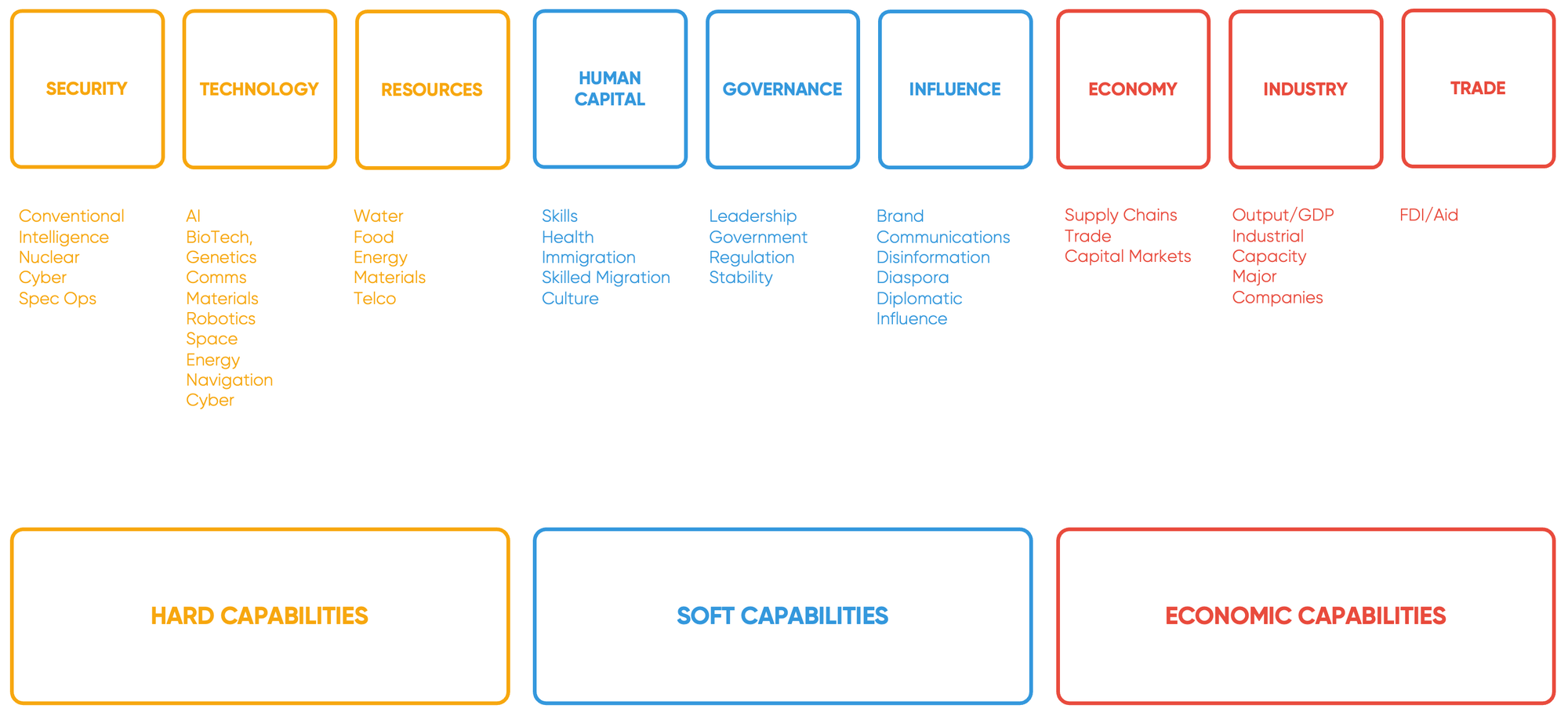National Capability Framework
The National Capability Framework is an open-source model for analyzing and benchmarking national strategy and capability.

Resources
- Description: Availability of natural resources like oil, gas, minerals, and arable land.
- Significance: Resource wealth can boost economic development, provide energy security, and enhance geopolitical influence.
Technology
- Description: Measured by R&D expenditure, number of patents filed, high-tech exports, and the level of innovation.
- Significance: Indicates a country's capacity for innovation, competitiveness in global markets, and ability to adapt to technological changes.
Military
- Description: Assessed by factors such as military expenditure, active personnel, equipment sophistication, and defense capabilities.
- Significance: Represents a nation's ability to defend itself, project power, and influence global security dynamics.
- Environment
- Infrastructure
- Mobility
Economic
- Description: The total monetary value of all goods and services produced within a country's borders in a specific time period.
- Significance: GDP reflects the economic size and strength of a nation, indicating its capacity to fund government initiatives, defense, infrastructure, and social programs.
Influence
- Description: Measured by the number of diplomatic missions, participation in international organizations, and leadership roles in global affairs.
- Significance: Indicates a nation's ability to influence international policies, forge alliances, and contribute to global governance.
Human Capital
- Description: Evaluated by literacy rates, higher education enrollment, and the quality of educational institutions.
- Significance: A well-educated workforce enhances innovation, productivity, and the ability to compete in knowledge-based industries.
- Health
